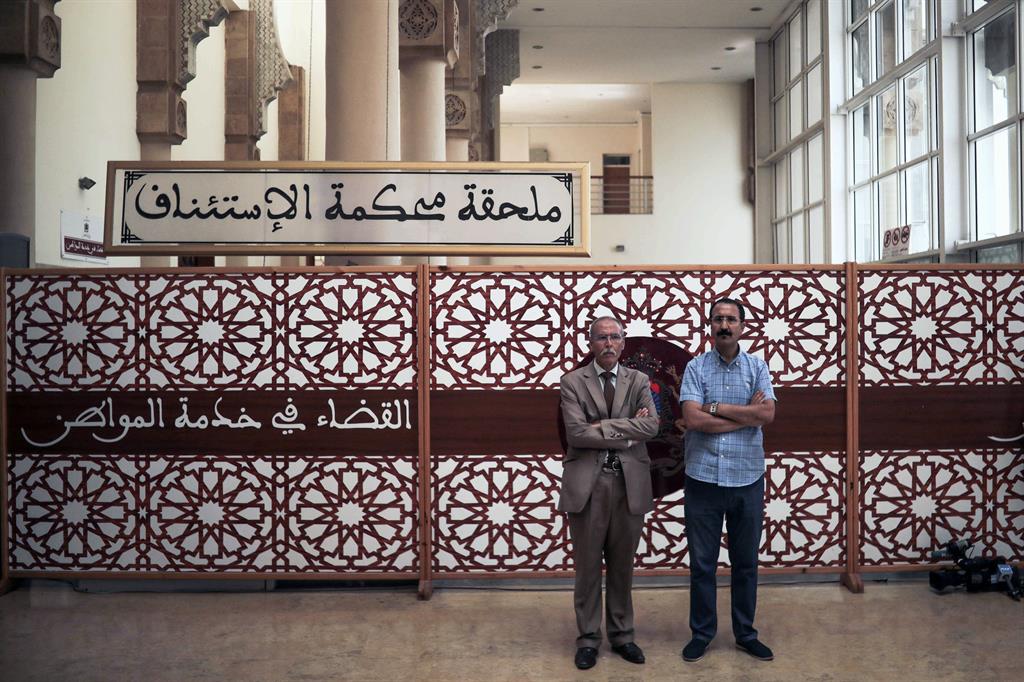Africa Briefs
Morocco urged to press ahead with dirham float
The International Monetary Fund (IMF) reiterated on Tuesday its call on Morocco to move towards a greater exchange rate flexibility with a view to strengthening the economy’s resilience to external shocks and boosting competitiveness.
In January 2018, Morocco widened the band in which the dirham trades against hard currencies to 2.5% either side of a reference price from the previous 0.3%.
Authorities told the IMF the next phase in the dirham float will be launched when economic conditions permit.
The central bank has not intervened in the foreign exchange market since March 2018.
“The banking sector system is sound and resilient,” said the IMF, while stressing the need to remain vigilant given the increasing complexity and cross-border expansion of Moroccan banks, which combined with further exchange rate flexibility, could introduce new risk factors. – Nampa/Reuters
Egypt says its economy on right track
Egypt's economy grew 5.6% in the 2018/19 fiscal year and is "on the right track" as it completes IMF-backed reforms, prime minister Mustafa Madbouli said yesterday.
The budget deficit came in at 8.2% of GDP, he said, which was slightly below an official forecast of 8.4%.
Egypt is emerging from a three-year economic reform programme tied to a US$12 billion loan from the International Monetary Fund.
Egypt has been praised by international lenders for swift reforms implemented since 2016, though austerity measures and inflation have left many Egyptians struggling to get by.
The reforms included a sharp devaluation of the currency, the introduction of value-added tax and the elimination of subsidies on most fuel products. – Nampa/Reuters
Kenya deports foreign directors of betting firms
Kenya has ordered the deportation of 17 foreign directors of betting firms operating in Kenya, the interior ministry said yesterday, almost a week after ordering telecoms firm Safaricom to stop processing payments for sports betting firms.
Online sports betting companies such as SportPesa have grown rapidly in the East African nation in recent years, riding a wave of enthusiasm for sports, with the government putting their combined revenue at 200 billion shillings (US$2 billion) last year, up from 2 billion shillings five years earlier.
However, that has raised government concern about the social impact of betting. In May, the country introduced new gambling regulations, including banning advertising outdoors and on social media.
The interior ministry said on 1 July that regulator Betting Control and Licensing Board had declined to renew licences of 19 firms while it reviewed their operations and shareholding structures.
Reuters could not immediately ascertain those targeted but Kenya's Daily Nation newspaper, citing unnamed sources, reported that they included nationals of Bulgaria, Italy, Russia and Poland. – Nampa/Reuters
The International Monetary Fund (IMF) reiterated on Tuesday its call on Morocco to move towards a greater exchange rate flexibility with a view to strengthening the economy’s resilience to external shocks and boosting competitiveness.
In January 2018, Morocco widened the band in which the dirham trades against hard currencies to 2.5% either side of a reference price from the previous 0.3%.
Authorities told the IMF the next phase in the dirham float will be launched when economic conditions permit.
The central bank has not intervened in the foreign exchange market since March 2018.
“The banking sector system is sound and resilient,” said the IMF, while stressing the need to remain vigilant given the increasing complexity and cross-border expansion of Moroccan banks, which combined with further exchange rate flexibility, could introduce new risk factors. – Nampa/Reuters
Egypt says its economy on right track
Egypt's economy grew 5.6% in the 2018/19 fiscal year and is "on the right track" as it completes IMF-backed reforms, prime minister Mustafa Madbouli said yesterday.
The budget deficit came in at 8.2% of GDP, he said, which was slightly below an official forecast of 8.4%.
Egypt is emerging from a three-year economic reform programme tied to a US$12 billion loan from the International Monetary Fund.
Egypt has been praised by international lenders for swift reforms implemented since 2016, though austerity measures and inflation have left many Egyptians struggling to get by.
The reforms included a sharp devaluation of the currency, the introduction of value-added tax and the elimination of subsidies on most fuel products. – Nampa/Reuters
Kenya deports foreign directors of betting firms
Kenya has ordered the deportation of 17 foreign directors of betting firms operating in Kenya, the interior ministry said yesterday, almost a week after ordering telecoms firm Safaricom to stop processing payments for sports betting firms.
Online sports betting companies such as SportPesa have grown rapidly in the East African nation in recent years, riding a wave of enthusiasm for sports, with the government putting their combined revenue at 200 billion shillings (US$2 billion) last year, up from 2 billion shillings five years earlier.
However, that has raised government concern about the social impact of betting. In May, the country introduced new gambling regulations, including banning advertising outdoors and on social media.
The interior ministry said on 1 July that regulator Betting Control and Licensing Board had declined to renew licences of 19 firms while it reviewed their operations and shareholding structures.
Reuters could not immediately ascertain those targeted but Kenya's Daily Nation newspaper, citing unnamed sources, reported that they included nationals of Bulgaria, Italy, Russia and Poland. – Nampa/Reuters





Kommentar
Allgemeine Zeitung
Zu diesem Artikel wurden keine Kommentare hinterlassen